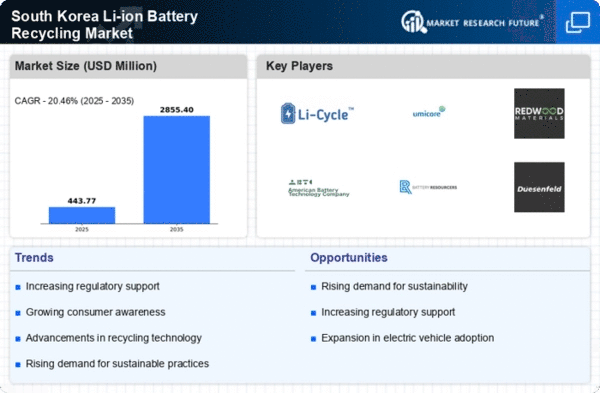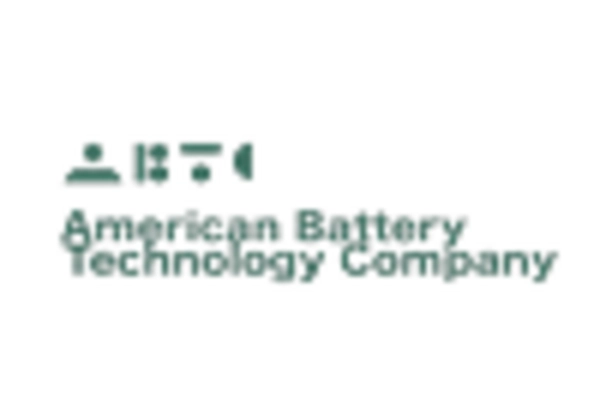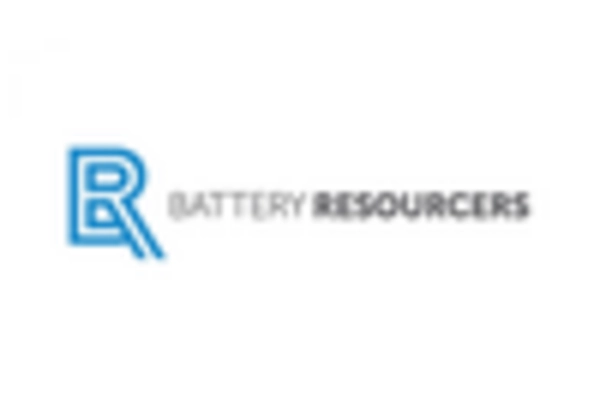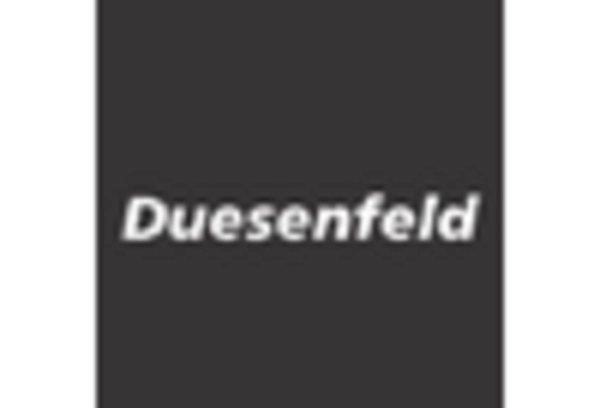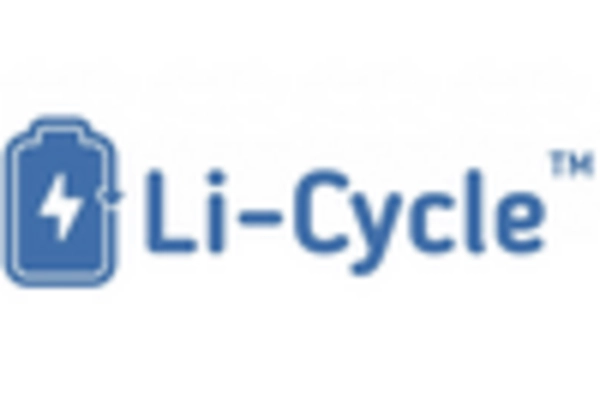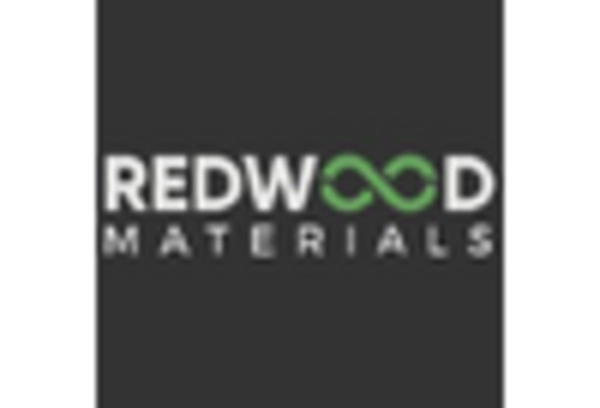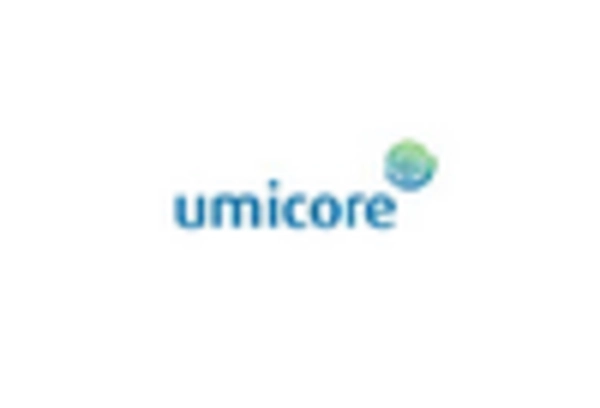Growing Electric Vehicle Adoption
The increasing adoption of electric vehicles (EVs) in South Korea is a crucial driver for the Li-ion Battery Recycling Market. As the number of EVs on the road rises, so does the demand for efficient recycling solutions for used batteries. In 2025, it is estimated that over 1 million EVs will be in operation, leading to a significant increase in battery waste. This surge presents an opportunity for recycling companies to develop innovative processes to recover valuable materials from spent batteries. The South Korean government has set ambitious targets for EV adoption, which could potentially lead to a 30% increase in the volume of batteries requiring recycling by 2030. Thus, the growth of the EV market directly influences the expansion of the li ion-battery-recycling market.
International Trade Opportunities
The li ion-battery-recycling market in South Korea is poised to benefit from international trade opportunities. As global demand for recycled battery materials increases, South Korean companies are exploring export possibilities for recovered materials. The country is strategically positioned to become a key player in the global supply chain for recycled lithium and cobalt. In 2025, it is projected that exports of recycled materials could reach $200 million, driven by partnerships with international manufacturers. This trend not only enhances the economic prospects of the li ion-battery-recycling market but also positions South Korea as a leader in sustainable resource management. The potential for international collaboration may further stimulate innovation and investment in the recycling sector.
Government Incentives for Recycling
The South Korean government actively promotes the li ion-battery-recycling market through various incentives aimed at enhancing recycling rates. Financial support, including grants and subsidies, is provided to companies engaged in recycling operations. This initiative is part of a broader strategy to reduce waste and promote sustainable practices. In 2025, the government allocated approximately $50 million to support recycling facilities, which is expected to boost the market significantly. Furthermore, the introduction of tax breaks for companies that invest in recycling technologies is likely to encourage more businesses to enter the li ion-battery-recycling market. These incentives not only enhance the economic viability of recycling but also align with national goals for environmental sustainability.
Rising Consumer Awareness of Sustainability
Consumer awareness regarding sustainability is increasingly influencing the li ion-battery-recycling market. South Korean consumers are becoming more conscious of the environmental impact of battery waste, leading to a demand for responsible recycling practices. Surveys indicate that approximately 70% of consumers prefer products from companies that demonstrate a commitment to sustainability. This shift in consumer behavior is prompting manufacturers to adopt more sustainable practices, including the use of recycled materials in new battery production. As a result, companies that prioritize recycling initiatives are likely to gain a competitive edge in the market. The growing emphasis on sustainability is expected to drive the li ion-battery-recycling market forward, with an anticipated growth rate of 15% annually.
Technological Innovations in Battery Recycling
Technological advancements play a pivotal role in shaping the li ion-battery-recycling market. Innovations in recycling processes, such as hydrometallurgical and pyrometallurgical methods, enhance the efficiency of material recovery from used batteries. In South Korea, research institutions and private companies are collaborating to develop cutting-edge technologies that can recover up to 95% of valuable materials like lithium, cobalt, and nickel. This not only reduces the environmental impact of battery disposal but also lowers the costs associated with raw material procurement. As these technologies become more widely adopted, the li ion-battery-recycling market is likely to experience substantial growth, with projections indicating a market size increase of 25% by 2027.


